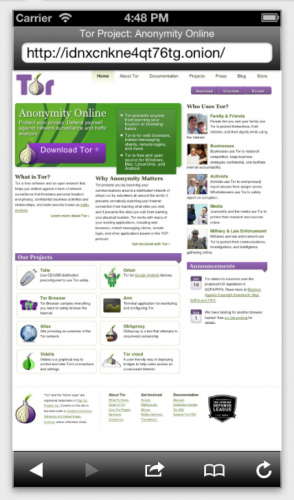The nice thing about digital problems is that there is usually a digital solution; you just need to care enough to find it.
In the wake of the NSA surveillance scandal some people have asked how I get around the walls and watchers that the internet has installed all around us in Web 2.0 land. There are no surefire ways to be completely anonymous, and most of the time I’m not because I have an iPhone, but there are definitely ways to mediate who knows what about your personal preferences and search habits. This process is called disintermediation – or bypassing the main distribution channels for information.
Don’t panic – I know it’s a big scary word and it might seem like you don’t have anything to hide so why be scared, but that argument is a false dichotomy. It’s not that you need to have something to hide to feel uncomfortable, it’s that over the last one hundred years, Congress and the Supreme Court have outlined and expanded upon the rights afforded to us in the first and fourth amendments. Quick reminder:
“Congress shall make no law respecting an establishment of religion, or prohibiting the free exercise thereof; or abridging the freedom of speech, or of the press; or the right of the people peaceably to assemble, and to petition the Government for a redress of grievances.”
and
“The right of the people to be secure in their persons, houses, papers, and effects, against unreasonable searches and seizures, shall not be violated, and no Warrants shall issue, but upon probable cause, supported by Oath or affirmation, and particularly describing the place to be searched, and the persons or things to be seized.”
Your discomfort arises because you are supposed to have the inherent right to speak, think and read freely. This means protection against the search and seizure of your mail, library book records and video rentals, and so too should this apply to your email, search history and kindle downloads. It’s just not very convenient for business to profit in the information age if your data is protected; they think they need to know why we do things in order to sell us products to make money and this is how one goes about it.
The reason this surveillance system has gotten as far as it has is because every single industry is inherently spying on data to some degree, which is why we need protections. Citizens have not been protected for two reasons. First, either government does not understand the internet, like Congress, or they do and they’re spying for law enforcement and the NSA. Second, since everybody else also wants a piece of your data, like the media, nobody will tell you how valuable it actually is and advertisers don’t like it when media holds government accountable for similar things – it’s just “metadata” right? And your sensibilities tell you that usability and convenience are paramount, while attempts at privacy on the other hand are accepted as elusive and futile.
I hold the strong belief that the only reason people don’t understand technology is because they don’t believe they can understand technology. As Douglas Rushkoff put it, “code literacy is a requirement for participation in a digital world.”
This was kind of Edward Snowden’s whole point in leaking information about the NSA Prism program. Most Americans had no idea the extent of their government’s spying capabilities and so he told them. Yes it is inconvenient to shield yourself from this kind of government behavior, especially when it seems so ubiquitous and futile, but so too was it inconvenient for black people to gain civil rights or women to get the vote, this is also about civil liberties. We can change business as usual and there are ways to get in between your data and corporations – you literally just have to care and take it seriously enough.
 Yes, if you want to get away from the corporate terms of service internet, that’s going to maximize your anonymity. This means no Microsoft, Google, Apple, Yahoo! or Facebook. You can still use a PC or a Mac, just reconfigure how – no more iTunes, Skype, Chrome. Switch to Songbird, I2p and Tor. Install Linux on your PC; learn how to disentangle your Mac from Apple. Here are some instant and much easier steps to reclaiming your digital life.
Yes, if you want to get away from the corporate terms of service internet, that’s going to maximize your anonymity. This means no Microsoft, Google, Apple, Yahoo! or Facebook. You can still use a PC or a Mac, just reconfigure how – no more iTunes, Skype, Chrome. Switch to Songbird, I2p and Tor. Install Linux on your PC; learn how to disentangle your Mac from Apple. Here are some instant and much easier steps to reclaiming your digital life.
The two easiest and immediate ways to start disintermediating this system are to use anonymous search sites like Duck Duck Go that don’t record your search terms as Google does, and stop giving out your email address everywhere you go.
Get the Snapchat of email – always have an anonymous address that has no association with your name or any profiles with 10minutemail.com. They instantly give you free a disposable email address for those times when you need to provide something, anything, but your own, or you need to email somebody with total anonymity from a public computer. Your inbox will stay open for 10 minutes before it self-destructs so you can verify the address one time, and you can keep requesting more time if you need it.
When it comes to getting your computer to stop snitching on you, there are a lot of options that can get quickly overwhelming to new users. Easy beginner’s solution is to head over to OpenDNS and use their Domain Name System. This is the function that turns a web address name into the numerical IP address and access where the site is located. Your internet service provider has their own default DNS they provide and they collect data about the sites you visit this way and share it with the government. OpenDNS is totally free and no installation required, just follow instructions to change the DNS address your machine connects to, and redirect one pipeline of information capturing away from your ISP.
 Next in disintermediation for dummies is to install Adblock Plus onto your browser, preferably the “proudly non-profit” Firefox. By default this add-on allows ads deemed “not annoying” and encourages non-intrusive advertising. I personally went into my settings once it was installed and disallowed all advertising because I prefer not to endure loud video ads when watching The Daily Show or see the manipulative algorithms on Facebook that tell me my friends think I should like something.
Next in disintermediation for dummies is to install Adblock Plus onto your browser, preferably the “proudly non-profit” Firefox. By default this add-on allows ads deemed “not annoying” and encourages non-intrusive advertising. I personally went into my settings once it was installed and disallowed all advertising because I prefer not to endure loud video ads when watching The Daily Show or see the manipulative algorithms on Facebook that tell me my friends think I should like something.
In fact, there are many ways to kill your cookies, but they may not be what you think. Private browsing usually makes people feel private enough to go look at porn or The Pirate Bay, but it actually won’t do anything for you except not let you see your own history on your machine. So skip that unless you are protecting yourself from the people around you getting onto your computer and seeing your search history, like an abuser if you are experiencing domestic violence and searching for how to get help. For immediate semi-good results with no installation necessary, use Duck Duck Go on a private browsing session.
Encryption for email and chats exists by the way, but most people assume they don’t need it, or that someone else does it for them. Just because Gmail encrypts your email doesn’t mean the government isn’t reading it, it just means Google tricked you into thinking that it is okay that they do as long as hackers can’t.
It’s somewhat laughable for the government to be so upset about leakers – we’re verging on nine charged by the Justice Department – when Americans have been leaking their personal data for over a decade. If more people block internet ads, maybe media outlets and social networks will start to see how this could affect their bottom line and will change their policies. They could at least be less annoying and more transparent about how your data is used, but they haven’t really told the truth about the extent of this leak because they are guilty of abuse I call data rape. This is especially gross when advertisers encroach into the editorial room.
Technology is agnostic; it’s the people using it that make it good or bad. In some cases mass use of data points is really useful – for reporting on traffic, for understanding public health and safety – but it’s also used to manipulate. As you surf through websites, these cookies and apps learn about you to present information at opportune moments in order to get you to make purchases. By blocking the bots, you prevent yourself from landing in these niche demographic advertiser profiles that become predictive of how each person is treated based on a profile: age, location, ethnicity, gender, sexual orientation or preferences for products and search terms that relate to these things. This is legal racial, sexual and class based profiling happening everyday – don’t feed the bots! They just tell us how different we all are, while the world is struggling to see our common humanity.
So you’ve mediated who has your DNS records, started searching anonymously and blocked advertisers from annoying you, now what? Well, if you want to keep up your daily Facebooking you will be personally associated with your name and network no matter how hard you try to conceal yourself. Privacy controls there are a misnomer – it’s impossible to stay private in such a public forum when associated with your real name or network of family and friends. Accept that this is true if you want to use it, and enjoy the fruits of your free Adblock Plus to protest the private spying operation while continuing to connect with your friends and family (ugh) on your terms of service. Alternatives include building your own social community where you own your own data and there is no mediation between you and your peers, which is what I’m doing in Brooklyn so stay tuned.
Consider too, how you feel about banks and bankers, because they are the same venture capitalists that are running the show when it comes to funding the media you read and the social media you use to the tune of billions of dollars. Here’s a video I made about that last year and submitted for a (denied) panel proposal at SXSW.
If you do stay on the corporate social networks, another way to disintermediate how your social network data is used is to shun the use of third party applications to siphon off your network information for their purposes. This is a way that Tumblr makes money – they sell consumer profile information and metrics on user engagement with brands along with their ads. In essence, when you use these services you are handing over private data about your posts, timeline and network connections to Tumblr, Facebook, some random app company or in the case of political campaigns using Facebook and mobile apps, directly to say, Barack Obama’s operation.
Adblocker is also available in iOS browser form for iPhones in the App store because your mobile phone will always snitch on you, might as well block the ads that make it all possible. Unless you buy two burner phones with cash in a store that does not have surveillance cameras and send one to a friend by snail mail with stamps you pay cash for while wearing a balaclava (a hat which is illegal in public), you are probably going to be clocked using a mobile phone. Even then, the post office will take a picture of your burner package en route to its destination. One way to stay semi-anonymous is to buy an iPod touch with cash, jailbreak it, don’t use the App Store or iTunes, get a text and talk app, and use it only over public wireless networks so you effectively hide in the crowd. Otherwise, get a quarter and find a payphone.
 If you are looking for a pseudo-anonymous way to visit the internet on your computer download the TOR program – it’s basically Firefox with a fancy re-router called Vidalia. Though it is a project of the U.S. Naval Research Laboratory, which is part of the government, it is also an underground virtual network that reroutes traffic through many points before delivering you to your destination from a laundered location to avoid censorship, surveillance or advertising bots fishing for your consumer data and location.
If you are looking for a pseudo-anonymous way to visit the internet on your computer download the TOR program – it’s basically Firefox with a fancy re-router called Vidalia. Though it is a project of the U.S. Naval Research Laboratory, which is part of the government, it is also an underground virtual network that reroutes traffic through many points before delivering you to your destination from a laundered location to avoid censorship, surveillance or advertising bots fishing for your consumer data and location.
Sometimes it can be a bit slow to browse, but not terribly so, and if you are an activist it means you can look at pages that might be surveilled or blocked by your government without totally giving yourself away (usually this is most useful for activists outside the U.S.). Remember, if someone is looking for you on the internet grid, they will likely be able to find you if they try hard enough, especially if you are using the mobile version – the Onion browser app, which means Apple also knows if you purchased it from the app store.
For the majority of Americans, using TOR simply means we can bypass data rape by advertisers and employer imposed blocks on websites. You should be able to run TOR off of a USB drive on any computer without having to install it, in case there is a block on installing programs on your public or work computer that a little social engineering can’t fix. TOR is also known for it’s .onion community, which had this to say about the recent NSA spying revelations.
People will obviously laugh and say you have something to hide, but after the PRISM leak, there’s just no trust to be had in giving those large companies any of your personal information. What’s the point of giving them anything when they’re just going to bypass laws and the constitution that are meant to protect you.
tl;dr don’t use anything by the big companies, use Tor for every clearnet connection, use I2P for everything else, and encrypt everything, whether on Tor or I2P or clearnet.
 A lot of people tell me, ‘oh, the internet already knows a lot of things about me so what does it matter, isn’t it too late?’ It’s not too late – they are only just figuring out how to do this and building the infrastructure as we type.
A lot of people tell me, ‘oh, the internet already knows a lot of things about me so what does it matter, isn’t it too late?’ It’s not too late – they are only just figuring out how to do this and building the infrastructure as we type.
Little Snitch is a great program that you can probably find for free somewhere and install to alert you to the requests for data that websites make to your computer as you browse and download things. Little Snitch will learn how much data you are willing to part with the more you use it and tell it your preferences and then it will notify you if anything suspicious comes up.
The bottom line is that we do want to share some data, just not all of it all the time to people who want to sell us right back to ourselves. The problem is that setting up semi-private space for ourselves online has a high up front cost of time and sometimes money if you need server space or technical assistance. If you really want to keep a Google account, well, there is a cost to that account too – it’s certainly not free by any means when you pay for space with your daily data. Another long promised protection package is under development by Professor Eben Moglen’s Freedom Box Foundation, which just put out their first software release to protect your data from being siphoned off your computer unbeknownst to you, but it is early yet. Here is a place you might start gaining control of social media network privacy data.
A hosting service with a good support service can allow you to set up your own internal private cloud, build a wordpress website and host a personal email system for yourself, through a virtual private network even. Once you have a domain at whateveryouwant.com you can set up email with the program Sparrow to access your multiple accounts via apps on your laptop and your mobile phone. Government requests for access to your email would come to your host provider, who may be more likely to notify you than Google, a government contractor, would, but you should definitely check with your host’s policy – they may need a dose of disintermediation too.
If you really want to go deep with your privacy settings you can run your own servers for better fourth amendment protection since you own, and don’t rent, your server; everything to learn how to do that is available online. Maybe use TOR to do the research, if you trust it.
tl;dr if you only read this line, you might be the reason we’re all in this predicament in the first place.

GUILTY AS CHARGED. HAHA, will def have this saved to reference!
[…] are some steps you can take to mediate the surveillance of your […]
http://privacyfix.com/